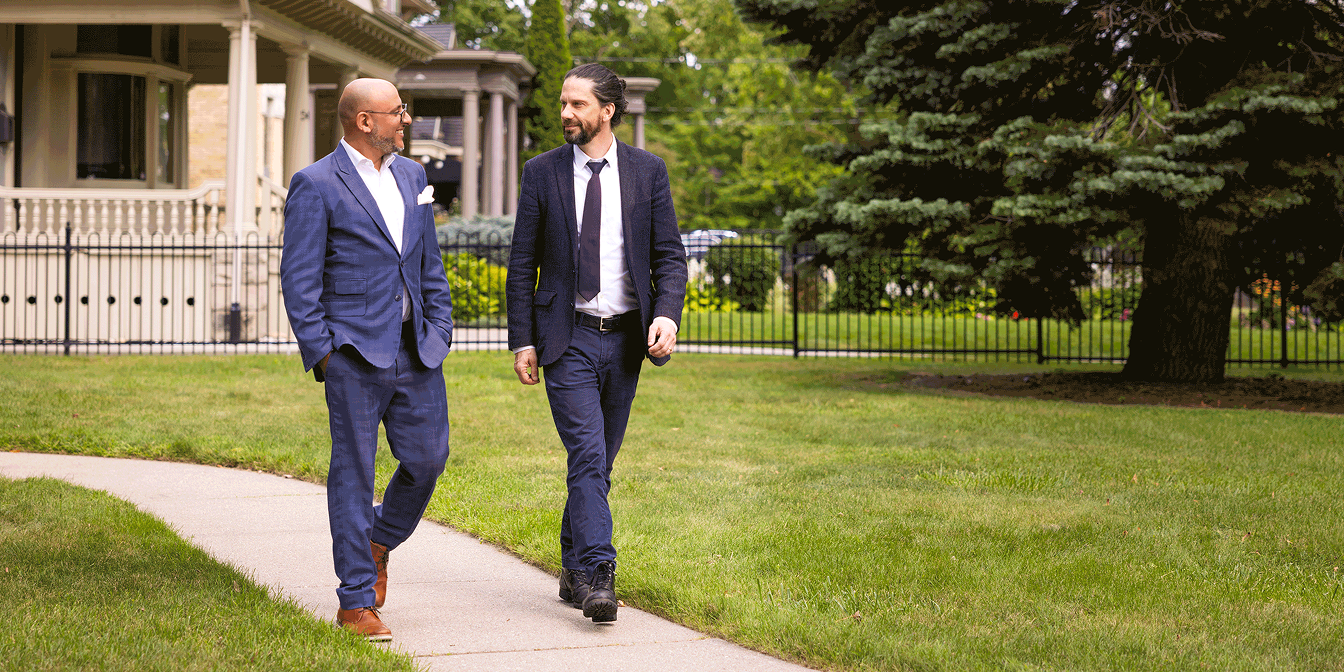London Ontario Lawyer for Guardianship Application
Caring for Your Loved Ones,
Together
Whether you’re navigating a new guardianship application or stepping in to support a loved one’s care, we’ll guide you through the process with clarity and compassion.

London Ontario Lawyer for Guardianship Application
Caring for Your Loved Ones,
Together
Whether you’re navigating a new guardianship application or stepping in to support a loved one’s care, we’ll guide you through the process with clarity and compassion.

London Ontario Lawyer for Guardianship Application
Caring for Your Loved Ones,
Together
Whether you’re navigating a new guardianship application or stepping in to support a loved one’s care, we’ll guide you through the process with clarity and compassion.

Guardianship Application Lawyer
How Can We Help?
Supporting a loved one through incapacity requires careful legal planning. We provide guidance through the guardianship application process, including capacity assessments, planning, negotiations with the Public Guardian and Trustee, and court representation, ensuring your loved one’s financial and personal care needs are met with compassion and clarity.
capacity assessment and planning
How Do You Prove Incapacity?
We work with you to understand the evidentiary elements of the Application:
The Capacity Assessment(s)
- The Capacity Assessments prove to a Judge that the person is incapable of managing their finances and/or their personal care.
The PLAN(s) for the care of your loved one.
- The Management plan lays out how you will prudently manage your loved one’s finances and assets to ensure their liabilities are being paid for and to provide for your loved one’s needs.
- The Guardianship plan lays out how you will care for your loved one’s physical well-being and dignity. This plan includes how you will care for your loved one’s clothing, hygiene, shelter, and safety concerns - together with those end-of-life medical decisions.

How Do You Prove Incapacity?
We work with you to understand the evidentiary elements of the Application:
The Capacity Assessment(s)
- The Capacity Assessments prove to a Judge that the person is incapable of managing their finances and/or their personal care.
The PLAN(s) for the care of your loved one.
- The Management plan lays out how you will prudently manage your loved one’s finances and assets to ensure their liabilities are being paid for and to provide for your loved one’s needs.
- The Guardianship plan lays out how you will care for your loved one’s physical well-being and dignity. This plan includes how you will care for your loved one’s clothing, hygiene, shelter, and safety concerns - together with those end-of-life medical decisions.

Public guardian and trustee negotiation
How Will You Provide Care?
We negotiate with the Public Guardian and Trustee, and ensure that your Plans for the finances and personal care are strong before they reach the Judge.

How Will You Provide Care?
We negotiate with the Public Guardian and Trustee, and ensure that your Plans for the finances and personal care are strong before they reach the Judge.

Guardianship hearing
What Happens At The Hearing?
We go to Court on your behalf before a Judge in the Superior Court, to lay out your plans, and to answer the Judge’s questions. When this is complete, a Judgement is issued naming you your loved one’s Guardian.

What Happens At The Hearing?
We go to Court on your behalf before a Judge in the Superior Court, to lay out your plans, and to answer the Judge’s questions. When this is complete, a Judgement is issued naming you your loved one’s Guardian.

The follow-up + Passing of accounts
How Do You Fulfill Duties?
Once you have been named the Guardian for your loved one, you will be free to make decisions on your loved one’s behalf.
Through this phase, you may encounter issues, or have questions, relating to how to navigate your responsibilities as your loved one’s Guardian. We will walk you through.
After a certain period of time, the Judge can order you to give an account for how you have used your responsibility. The Judge may - for instance - ask you to show how you have used the money that was entrusted to you for your loved one’s benefit, and ask you to prove how each transaction served your loved one’s well-being.

How Do You Fulfill Duties?
Once you have been named the Guardian for your loved one, you will be free to make decisions on your loved one’s behalf.
Through this phase, you may encounter issues, or have questions, relating to how to navigate your responsibilities as your loved one’s Guardian. We will walk you through.
After a certain period of time, the Judge can order you to give an account for how you have used your responsibility. The Judge may - for instance - ask you to show how you have used the money that was entrusted to you for your loved one’s benefit, and ask you to prove how each transaction served your loved one’s well-being.

real life, solution-oriented guardianship service bundles
Everything You Need Under One Roof
Whether you’re preparing for the future or settling a loved one’s estate, our bundles combine wills, powers of attorney, probate applications, and related services in one seamless process. We simplify the paperwork, protect your wishes, and ensure everything is handled with care and clarity.

Guardianship & Estate Planning Bundle
This bundle is designed to provide a coherent Estate plan with an application for Guardianship over a loved one who cannot make decisions for themselves.
Inclusions:
- Advise on ODSP limitations, Passport Funding, Disability Maintenance Trusts, Henson Trusts, and RDSPs.
- Strategize Guardianship Plan and Management Plan
- Facilitate Capacity Assessment
- Public Guardian and Trustee negotiations
- Attend and Advocate Hearing
- Guide through the Guardianship Process to ensure proper record keeping in anticipation of Passing of Accounts.
- Provide guidance on special assets (i.e. real estate).

Family Office Bundle
For high net worth individuals > 5 million planning for intergenerational wealth transfers
Inclusions:
- Provide Fractional Chief Legal Officer Functions for your Family Dynasty.
- Bi-annual Estate Planning Reviews
- Work with Financial Planners, and tax accountants to work a coherent Plan
- Estate Freezes where necessary for Business Transfers.
- Executor/POA property services available.
Wisdom-focused Legal Practitioners
Whether you’re involved in the criminal justice system, looking to buy/sell a home, or just plan for the future, we offer wise guidance and support that will save you time, energy, and money. We tailor our solutions to meet your unique needs, because we see you as a human being – not a case.

What Our Clients Have To Say
Frequently Asked Questions
An attorney is appointed by an individual who is mentally capable, while a private guardian is appointed by the court or the Office of Public Guardian and Trustee (OPGT).
If a guardian is appointed by the court or by the OPGT, the guardian might not be who the mentally incapable person would choose. For most people, having a power of attorney for property or personal care means that you will not need to have a guardian appointed for you.
Typically, No. While there may be some exceptional circumstances in which a guardianship application is required, in most circumstances, if you have been named as a Power of Attorney for Property and Care, you will not need to do a Guardianship Application.
Yes. It is required that you complete a Guardianship application. If your loved one doesn’t have the requisite capacity to make a Power of Attorney for either property or care, they cannot transfer that authority, and a Court order is required.
A Guardianship application provides a judge with two types of evidence: 1) that the person is actually incapable; and, 2) that the applicant is the best suited person (i.e. instead of the default guardians being the Public Guardian and Trustee) to take responsibility for making financial or health care decisions.
If satisfied, the judge provides a Guardianship Certificate which formally authorises you to make decisions affecting the incapable person’s financial and bodily well-being.
A guardian of property; a person or trust corporation that makes final decisions on behalf of a mentally incapable adult. Appointed either by the OPGT or the Ontario Superior Court of Justice.
A guardian of a person; someone appointed by the court to make personal care decisions on behalf of a mentally incapable adult. This usually happens when the person doesn’t have a power of attorney for personal care or if their attorney is not able or willing to fulfill their duties.